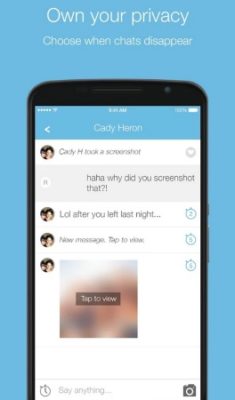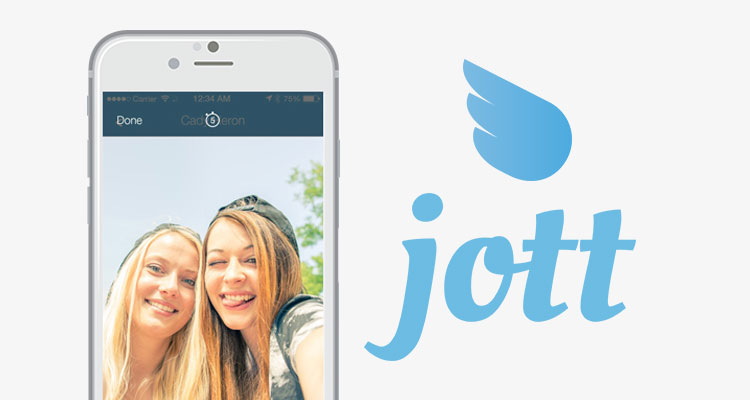One of the hottest new mobile messaging services this year is Jott Messenger, and it’s taking the teen world by storm.
It takes a special kind of app to capture the attention of teens, and Jott is quickly climbing in the ranks among this age group, just as Snapchat, Kik, Whatsapp, and Facebook Messenger did before it.
What Is Jott?

Offline messaging.
Simply put, Jott gives users the ability to send and receive messages, even those including photos, without requiring a cell phone plan. Thanks to Bluetooth and WiFi chips, teens can use mobile devices such as iPods, tablets, or even an older cell phone with no active service plan to access Jott and talk directly to each other. Jott calls this AirChat.
Users are required to input their real name, birthday, and phone number or e-mail to use the service. Once an account is created, the user can join a private group, such as a group created specifically for students at a school.
The app is designed to be used in areas where data connections can be unreliable or unavailable, such as sporting events, concerts, or even on an airplane.
What Parents Need to Know
Like some other messenger apps (see: Snapchat), Jott messages can self-destruct. Many people use self-destructing messages for privacy, but it is a feature that could hide criminal or unapproved activity such as sexting.
This feature makes it significantly more difficult for parents to monitor their child’s cell phone activity, which means it is as important as ever to talk to your child about important privacy subjects.
It is estimated that up to 80 percent of students at some schools use Jott to communicate with friends, and the entire user base for the app, around half a million and growing quickly, is almost exclusively made up of kids ages 13–17. The service is most popular among high-school age students.
What Are the Benefits of Jott?
For the most part, Jott is much like many other messaging services available today. However, the fact that Jott can send and receive messages when not connected to a mobile network could be a game changer.
For one, Jott could potentially be used in an emergency situation if cell networks go down. Having a critical mass of users on a messaging platform that allows for message transfers over WiFi and Bluetooth could literally mean the difference between life and death.
Another benefit, depending on how you look at it, is the fact that messages expire, and the app will notify users if someone they are chatting with took a screenshot of a message. Some platforms may block users from taking screenshots altogether (like CyberDust on Android).
However, it should be noted that some platforms do still allow for screenshots of messages, so it’s important that users know this and not send compromising images or texts.
Because messages are sent to and received from other mobile devices directly, there is no real risk of a third party stealing data, but this doesn’t mean that messages can’t end up in the wrong hands.
Being responsible and not sharing embarrassing messages or photos is the best way, in any app, to protect your own privacy. Be sure to talk to your kids about using services such as these responsibly and protecting their digital footprint.





































